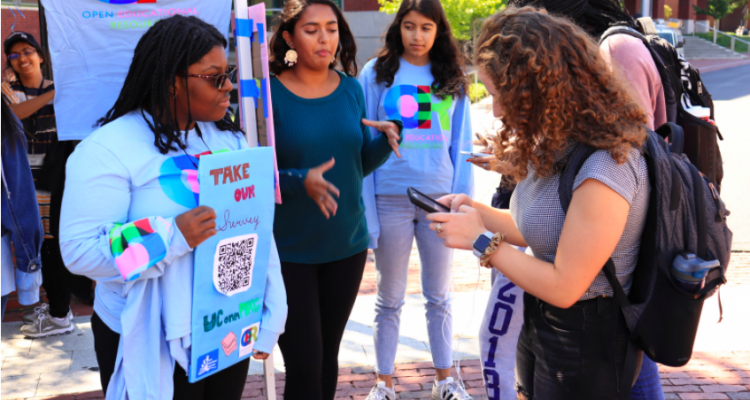Textbook affordability is an issue plaguing college students across the globe. UConnPIRG, one of ConnPIRG’s two chapters in the state of Connecticut, hopes to combat this issue through their Textbook Affordability campaign.
In 2017, a report compiled by UConnPIRG revealed that 25% of UConn students were spending over $200 dollars on their textbooks each semester. To address this issue, the campaign wants all introductory level classes at UConn to use Open Educational Resources (OERs). An OER is a government funded grant consisting of open textbooks and open source accessibility to journal articles, access codes and other resources that are accessible to anybody for an infinite amount of time.

Erin McConnell, UConnPIRG Campus Relations Coordinator and seventh-semester applied mathematics and statistics double major, said that textbook affordability aligns with other accessibility issues such as food insecurity, inability to pay rent and dropping classes in order to cover other expenses.
“It’s difficult to decide whether you’re going to pay for your next meal or pay for a textbook to do well in a class,” McConnell said. “The whole purpose of being here is to learn and to educate yourself and if you can’t even have access to materials you need to do that, then it’s just really an unfair experience for some people.”
She said there are cases where students, rather than purchasing access codes for their homework, complete all their assignments in the two week free trial provided by textbook publishers. To combat this, UConnPIRG and USG are working to create a price transparency website that will allow students to make decisions about which classes to take based on their required textbook prices.
Within the past few years, the Textbook Affordability campaign secured about 2 million dollars in UConn’s budget for OER grant funding from the state capitol. UConn also has its own grant program where professors can either peer edit or write their own OER textbooks. The Homer Babbidge Library offers OER textbooks as well, something that many professors do not know about.
Shafina Chowdhury, a third-semester accounting and applied mathematics double major, is the UConnPIRG Campaign Coordinator. She explained how some professors rejected the idea of using OER textbooks simply because they dislike the design, saying it wouldn’t motivate students to read their textbooks.
“Unfortunately our professors don’t like them, and they either don’t research them or even if they do, that isn’t what they want,” she said. “It goes back to our professors themselves and convincing them how beneficial [OER textbooks] would be.”
COVID-19 is also impacting the campaign to an extent, preventing members from tabling, organizing in-person events and directly talking to faculty. Chowdhury said that although emails are effective, they’re not efficient since people can ignore them. By campaigning through social media and by reaching out to other Tier 3 organizations such as WHUS Radio and UCTV, UConnPIRG can still spread awareness and make the student body more knowledgeable.
“PIRG is holding this campaign because it’s really relevant to students,” Chowdhury said. “One of our questions in selecting a campaign is ‘Is it relevant, is it hot’ and yes, textbook issues are relevant for students in our campus.”
Students can help by taking the survey which will be vital in helping UConnPIRG achieve their own price transparency goals. McConnell and Chowdhury also hope that the administration will take notice and run their own version of the survey. The student body can contact their professors and help them learn more about OERs to help people get a better and more accessible education, especially for lower income students.
“I believe if we just keep pushing and sticking true to what we are working for, it’ll happen at some point,” McConnell said.


